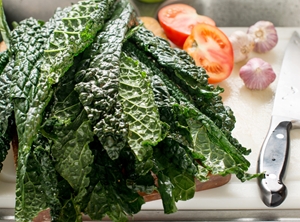
If you've been enjoying a meat-free diet, there's no reason to put your vegetarianism aside just because you have a baby on the way. Find out how to get the vitamins and minerals you need to support your health – and your growing baby.
Protein
If getting an adequate amount of protein was tough for you before baby, it's about to get that much tougher. The United States Department of Agriculture advises healthy adult women to consume an average of 46 grams of protein as part of a balanced diet. Now that you're pregnant, the recommendation shoots up to 71 grams to support fetal development.
How to boost your intake: It's easier to consume protein than you might think, as just about every food contains at least a smidgen of the stuff. At each meal, make sure you're nibbling on foods that are protein-packed – items like legumes, nuts, quinoa, eggs, tofu and peanut butter. If you're the type of vegetarian who also consumes fish, try indulging in a plateful of healthful salmon each week.
Calcium
Growing babies need calcium to support good bone development. If there's not enough calcium made available through your diet, it will be leached from your bones to benefit your little one. That's a scary thought, isn't it? Safeguard your bone health by making certain you have the recommended daily allowance – 1200 milligrams of calcium.
How to boost your intake: If you can tolerate dairy products and you're not a vegan, then consuming milk and cheese is the best way to increase your calcium stores. Eating and drinking just four servings of calcium-rich foods should be enough to hit the recommended daily amount. Avoiding dairy? Stock up on calcium fortified foods like juices and cereals. Dark, leafy greens and beans are also good sources of calcium.
Iron
Iron helps deliver much-needed oxygen to muscles throughout the body, ensuring that each is functioning optimally. It's also a key component to fighting off stress and illnesses. Because iron is absorbed more efficiently during pregnancy, it's critical that you're mindful about consuming more at this time.
How to boost your intake: The recommended daily allowance of iron for a pregnant woman is 30 milligrams – that's three servings of iron-rich foods throughout your day. Unfortunately for the vegetarian set, the best way to absorb iron is through meat consumption. So, be dutiful about your iron sources: Look to highly fortified cereals, beans and legumes, fish and leafy green vegetables. Have your iron levels checked early on in your pregnancy to determine if you need a vitamin supplement.
How has your diet changed since becoming pregnant? If you've always been vegetarian or vegan, do you find pregnancy makes sticking to your health goals more difficult? Join our discussion below!


Leave a Reply